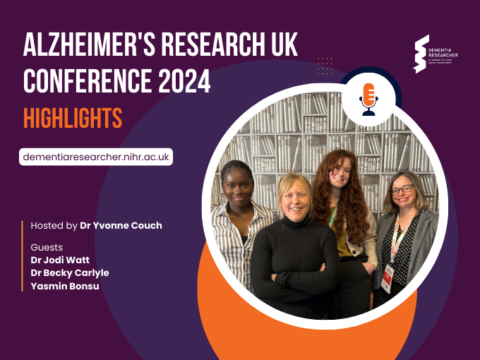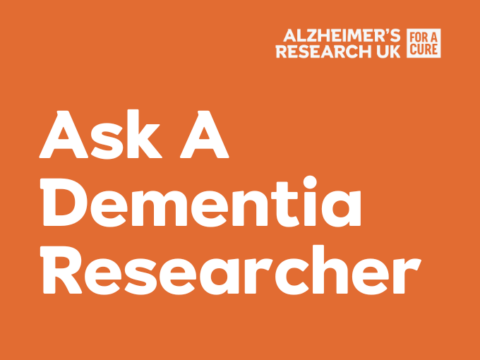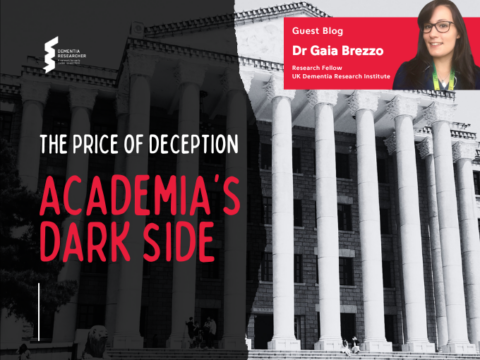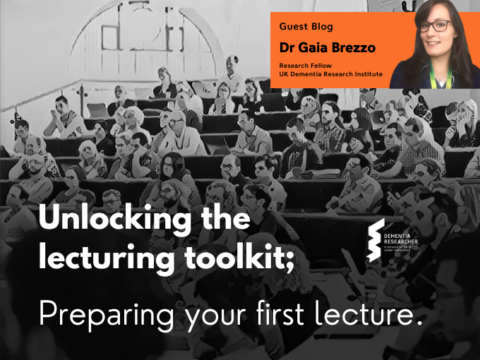
Dr Jill Fowler
Name:
Dr Jill Fowler
Job title:
Alzheimer’s Research UK Senior Research Fellow
Place of work / study:
Area of Research:
Stroke, vascular dementia, astrocytes
How is your work funded?
Alzheimer’s Research UK, Alzheimer’s Research UK Scotland Network, Royal Society, Medical Research Scotland, Wellcome Trust.
Tell us a little about yourself:
I undertook my BSc in Neuroscience at the University of Glasgow, and became fascinated by neurological research whilst working on an honours project investigating mechanisms of cell death after head injury under the mentorship of the Neuropathologist, Professor David Graham. I stayed in Glasgow for my MRC industrial collaborative PhD in Neuroscience learning animal models of stroke and brain injury in addition to spending time at Eli Lilly observing drug discovery research.
I moved to University of Edinburgh for my postdoctoral research, and in 2006 I was awarded a research fellowship by the Alzheimer’s Society to examine the mechanisms by which head injury can lead to dementia. I established a model of mild traumatic brain injury in mice which causes cognitive deficits and axonal pathology.
In 2015, I was awarded a senior research fellowship by Alzheimer’s Research UK to understand how stroke can lead to dementia. We are interested in a protective signalling pathway called Nrf2, which becomes activated when the cell encounters oxidative stress, and can switch on over 200 anti-inflammatory and anti-oxidant genes. We are investigating how stroke alters Nrf2 signalling, and determining if manipulating astrocytic nrf2 signalling with transgenic or pharmacological approaches can reduce neurodegeneration and cognition/white matter function.
We are currently interested in the response of astrocytes to stroke. After a discrete stroke in cortex, reactive astrocytes (the altered structure and function of astrocytes after brain injury) spread throughout the brain to areas anatomically connected, but remote from the stroke lesion. We are using a variety of tools in human and mouse brains (bulk, single cell RNA sequencing; adeno-associated viruses, multiphoton imaging) to study phenotype alterations to astrocytes. We would like to determine if targeting astrocytes may be a viable therapeutic approach to limit cognitive decline and neurodegeneration following stroke.
Outside of work, I have two children and a dog – we love exploring the beautiful countryside in Scotland on our bikes or walks, baking, gardening and the cinema.
Tell us a fun fact about yourself:
At the end of 2020 we got a cockapoo puppy called Lola who likes to feature in zoom calls when I work from home; either barking, or she can sometimes spotted in the background destroying our house, books, slippers, shoes- or her party piece of shredding entire toilet/ kitchen rolls. She is a handful but a great office companion!
Why did you choose to work in dementia?
My undergraduate and PhD research focused on researching mechanisms of cellular damage in the acute response to stroke or head injury. However, when I learned that both stroke and head injury can increase an individual’s risk of developing dementia, I wanted to learn more about the mechanisms responsible. During my time working with ARUK and other dementia charities, I have been very privileged to spend some time getting to know individuals living with dementia and their families/ carers. Hearing their stories have moved me greatly and provide inspiration for me on a day-to-day basis in my lab.
What single piece of advice would you give to an early career researcher?
You can never have too many mentors! Mentors don’t necessarily have to be your supervisor. Mentors, in addition to great colleagues/fellow students, will be able to help chat through things that worry you, help read grant proposals, prepare for interviews/important presentations, etc.
What book are you reading right now? Would you recommend it?
I’m midway through ‘Beautiful World, Where are You’ by Sally Rooney. I also listen to audiobooks on my commute, currently listening to ‘Wintering’ by Katherine May. I would recommend both, particularly Wintering.

 Print This Post
Print This Post




